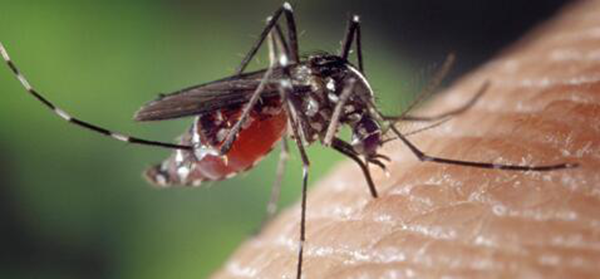What insect we can repell
Mosquito

Mosquitoes can act as vectors for many disease-causing viruses and parasites. Infected mosquitoes carry these organisms from person to person without exhibiting symptoms themselves.[citation needed] Mosquito-borne diseases include:
1.Viral diseases, such as yellow fever, dengue fever, and chikungunya, transmitted mostly by Aedes aegypti. Dengue fever is the most common cause of fever in travelers returning from the Caribbean, Central America, South America, and South Central Asia. This disease is spread through the bites of infected mosquitoes and cannot be spread person to person. Severe dengue can be fatal, but with good treatment, fewer than 1% of patients die from dengue. Work published in 2012 from Baylor College of Medicine suggested that for some diseases, such as dengue fever, which can be transmitted via mosquitoes and by other means, the severity of the mosquito-transmitted disease could be greater.
2.The parasitic diseases collectively called malaria, caused by various species of Plasmodium, carried by female mosquitoes of the genus Anopheles
3.Lymphatic filariasis (the main cause of elephantiasis) which can be spread by a wide variety of mosquito species
4.West Nile virus is a concern in the United States, but there are no reliable statistics on worldwide cases.
5.Eastern equine encephalitis virus is a concern in the eastern United States.
6.Tularemia, a bacterial disease caused by Francisella tularensis, is variously transmitted, including by biting flies. Culex and Culiseta are vectors of tularemia, as well as arbovirus infections such as West Nile virus.
7.Zika, recently notorious, though rarely deadly. It causes fever, joint pain, rashes and conjunctivitis. The most serious consequence appears when the infected person is a pregnant woman, since during pregnancy this virus can originate a birth defect called microcephaly.
Potential transmission of HIV was originally a public health concern, but practical considerations and detailed studies of epidemiological patterns suggest that any transmission of the HIV virus by mosquitoes is at worst extremely unlikely.
Various species of mosquitoes are estimated to transmit various types of disease to more than 700 million people annually in Africa, South America, Central America, Mexico, Russia, and much of Asia, with millions of resultant deaths. At least two million people annually die of these diseases, and the morbidity rates are many times higher still.
Methods used to prevent the spread of disease, or to protect individuals in areas where disease is endemic, include:
Vector control aimed at mosquito control or eradication
Disease prevention, using prophylactic drugs and developing vaccines
Prevention of mosquito bites, with insecticides, nets, and repellents
Ticks
Fleas not only endanger the health of animals, but also pose a new challenge to people’s living environment quality and health. The bisexual adult of flea all has habit of sucking blood, the person is bitten hind often can cause the allergic reaction of local organization, produce the papule with different size, the person with severe reaction has strange urticant intolerable feeling, still can cause anaemia of iron sex at the same time. Fleas are important vector organisms that can transmit a variety of important infectious diseases, including tapeworm, plague, hemorrhagic fever with renal syndrome, endemic typhus and bartonitis.